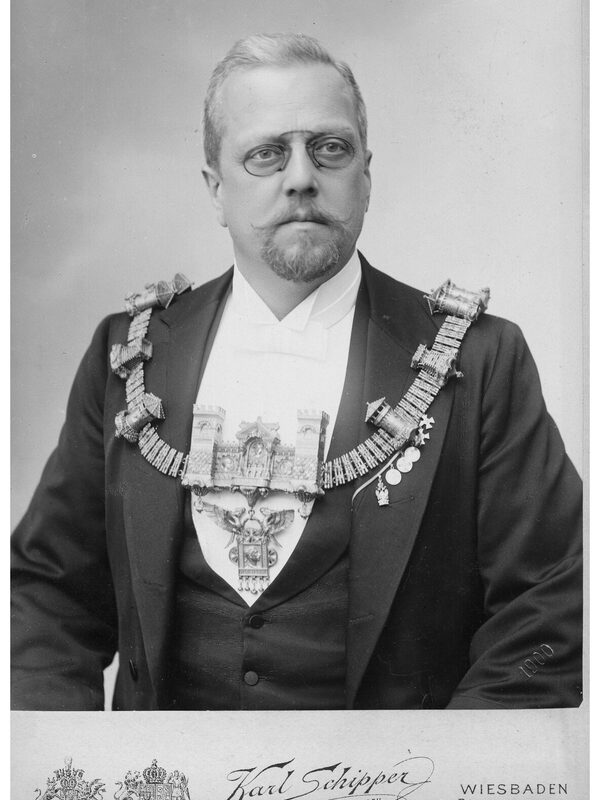Ibell, Karl (also Carl) Bernhard von
Ibell, Karl (also Carl) Bernhard von
Lord Mayor
born: 08.07.1847 in Bad Ems
died: 22.11.1924 in Wiesbaden
Ibell was the son of the Ems spa doctor Rudolf von Ibell and a grandson of the Nassau government president Karl Friedrich Emil von Ibell. He studied law in Munich and Berlin, took part in the war of 1870/71 and obtained his doctorate in Jena in 1878. From 1878-83 he worked as a lawyer in Frankfurt am Main. In 1883, he was nominated by the National Liberals for the election of Wiesbaden mayor. The election campaign was characterized by the contrast between the old-established, business-owning citizens and the wealthy rentiers and pensioners who had moved to the city and whose candidate Ibell was considered to be. He became first mayor in 1883 and was appointed Lord Mayor in 1886. Ibell was in office until 1913. He was a member of the provincial and Nassau municipal parliaments as well as the Prussian House of Lords. Ibell was a member of the Wiesbaden Casino Society.
Under his leadership, the city experienced its "heyday" as an international world spa town with regular imperial visits. Prestigious buildings such as the new town hall in 1887, the Kochbrunnen drinking halls in 1888, the new theater in 1894, the new Kurhaus in 1907, the Kaiser-Friedrich-Bad in 1913, as well as modern utilities such as the slaughterhouse in 1884, the sewer system in 1886, the gasworks in 1891, the power station, the main train station in 1906 and seven schools were built. In 1899, the city began planning new buildings for the library and museum; the state library was completed under Ibell. Ibell and his magistrate pursued a policy that favored rich rentiers with tax breaks to attract them to Wiesbaden, and burdened tradespeople and the socially disadvantaged with comparatively high prices for utility services, for example. He did not promote the incorporation of the suburbs, as this would have turned Wiesbaden into an industrial city and possibly shifted the political majority.
Ibell was considered to be privately modest, characterized by the Prussian work ethic and skilled in administration and diplomacy. He also presented himself to the Kaiser as a self-confident citizen. He retired in 1913. The year before, he had been made an honorary citizen. He was buried in a grave of honor in the entrance area of the North Cemetery. A street in Wiesbaden is named after the long-serving Lord Mayor.
Literature
Fuhr, Günter: Carl Bernhard von Ibell. In: Schmidtvon Rhein, Casino Society [pp. 176-179].
Weichel, Thomas: The citizens of Wiesbaden. From country town to "world spa town" 1780-1914, Munich 1997.
